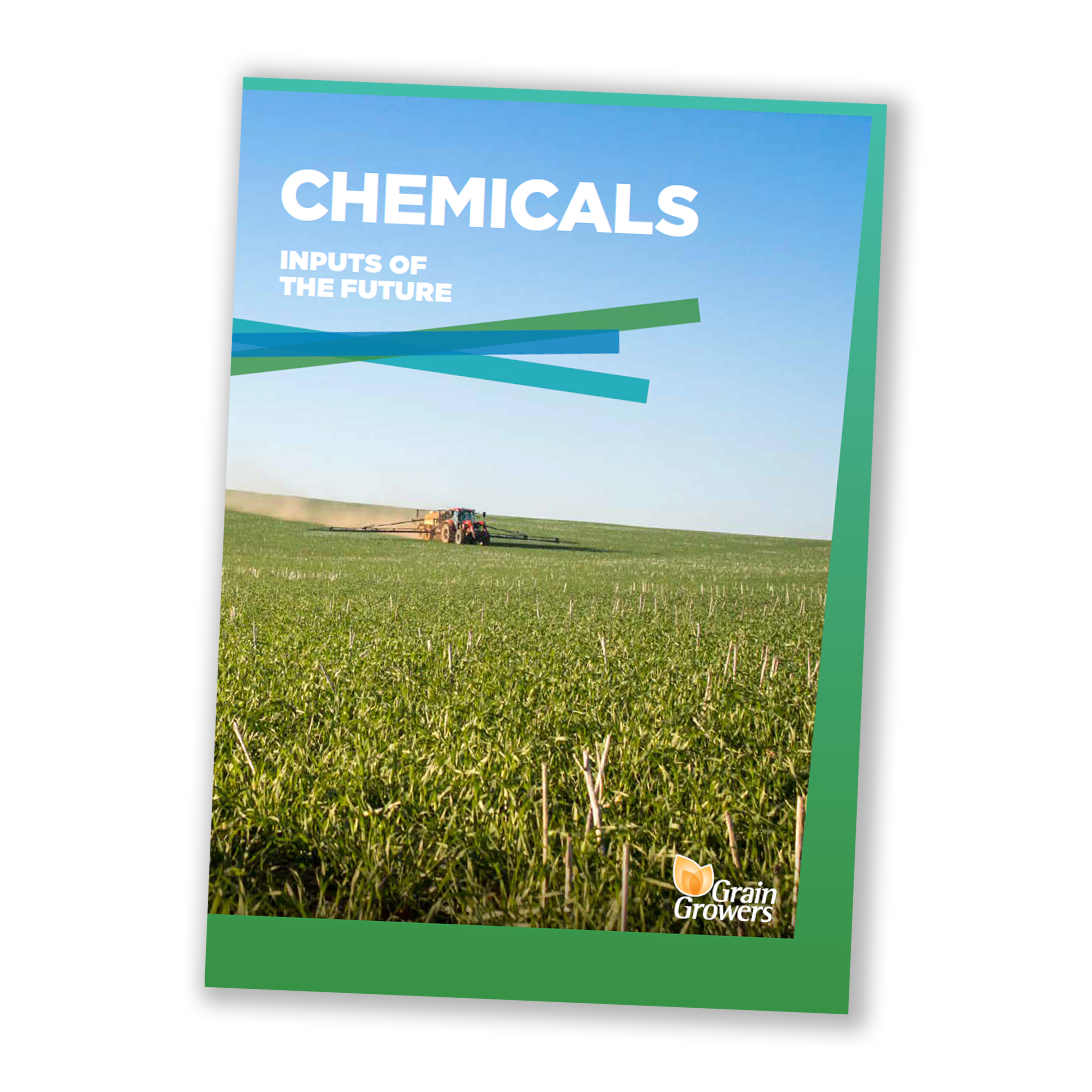The targeted and responsible use of agricultural chemicals is vital to Australian grain farming, delivering food security, economic stability, and environmental sustainability, a GrainGrowers report has found.
The report outlines the importance of Australia's regulatory system in protecting Australia's reputation and agricultural chemical safety standards. It also points to a heavy reliance on international chemical imports, highlighting that access to global suppliers remains crucial to meeting Australia’s unique farming needs.
The report, the second in a series examining farm inputs, provides a holistic overview of chemical usage and where the products come from and covers Australia’s regulatory approach to agricultural chemicals, improved environmental impact and dependence on imported products.
GrainGrowers Acting General Manager Policy and Advocacy Sean Cole said the report was a sobering reminder of the role played by herbicides, fungicides, and insecticides in grain production.
“Pests, weeds, and disease are issues that face every grower, and the effective use of carefully targeted chemicals delivers increased crop productivity and quality, enabling our farmers to feed consumers here and around the world safely and efficiently. The simple fact is that without agricultural chemicals, lower production would plunge the world into severe food instability.
“It is also not widely known that these same chemicals are also helping to reduce greenhouse gas emissions, and without them, Australia’s emissions from agriculture would be substantially higher.”
Mr Cole said the report highlighted a solid correlation between responsible chemical use and increasing production in grain crops.
“The agricultural chemicals used in Australia are crucial in modern agriculture. Without them, global crop yields would decline, intensifying food insecurity and inequality.”
The report highlights how herbicides, insecticides and fungicides have revolutionised agriculture.
Mr Cole said modern agricultural chemicals effectively manage a range of threats, including insects, weeds, and disease – all of which impact crop yield.
“Without chemicals, farmers would be forced to revert to extensive annual soil cultivation, using more labour and resources, reducing soil water retention, and elevating the risk of water runoff and soil erosion. This approach would also increase greenhouse gas emissions by releasing stored carbon in the soil.”
“Using agricultural chemicals has allowed an increasing number of farmers to adopt conservation tillage practices that minimise soil disturbance and improve overall soil health. This improved soil structure, combined with the adoption of unique farming systems and the strategic use of agricultural chemicals are pivotal in better managing drought.”
He said that targeted chemical applications, combined with new and innovative approaches to weed spray application – including remote mapping of weeds and field characteristics, intelligent sensors, and artificial intelligence – are helping to improve productivity while minimising environmental impacts.
The report covers Australia’s risk-based regulatory approach to agricultural chemicals undertaken through the Australian Pesticides and Veterinary Medicine Authority (APVMA). It states that the comprehensive scientific evaluation process undertaken through the APVMA protects the health and safety of people, animals, plants, and the environment, ensuring continued confidence in Australian products.
The report also considers Australia’s dependence on imported products. While Australian production faces unique challenges due to geographic and environmental diversity, it accounts for just 2% of the global market for agricultural chemicals.
Mr Cole said Australia heavily depended on imported products, with a significant percentage sourced from China and additional products imported from the European Union and the United States.
“The limited market size, coupled with a lack of raw materials, hinders the establishment of a domestic manufacturing base, leaving Australia to mostly formulate products from imported raw or concentrated materials.”
“From an Australian perspective, our priority is managing the complexities of imported supply to ensure continued cost-effective access to suitable agricultural products,” Mr Cole said.
The report Chemicals - Inputs of the Future is available from the GrainGrowers website.
Media contact: Chris Rowley
Phone: 0415 140 253 | Email: chris.rowley@graingrowers.com.au

